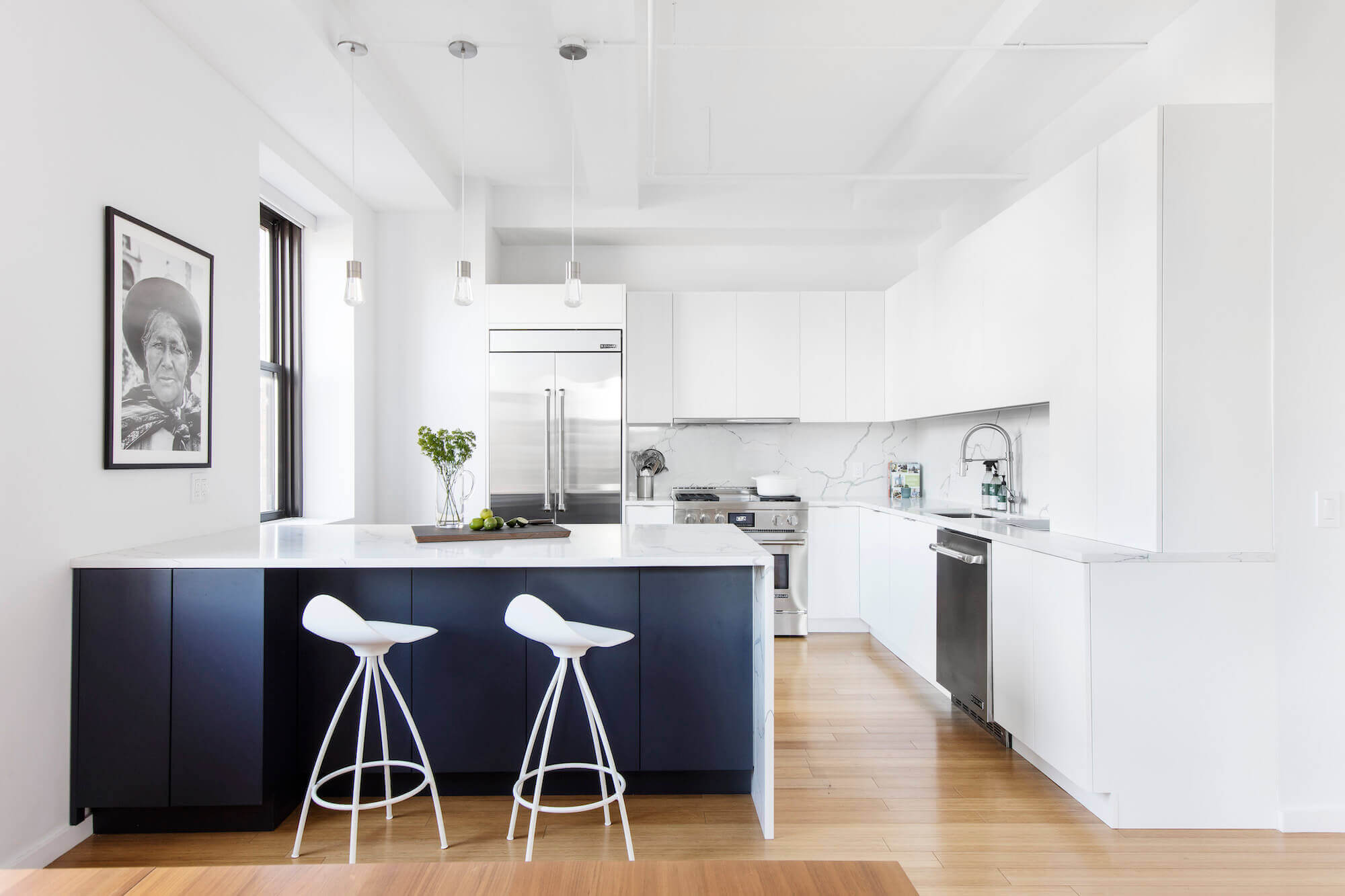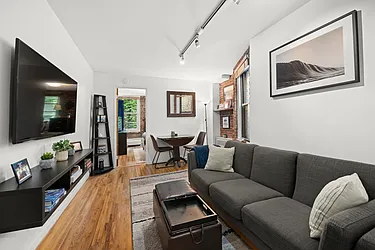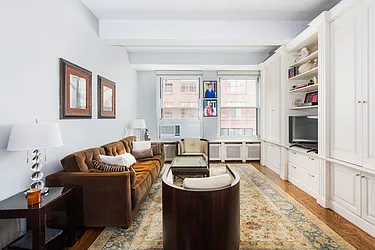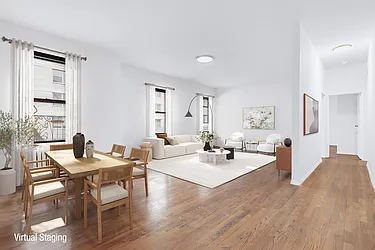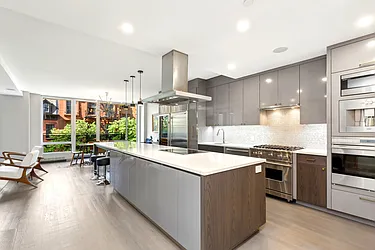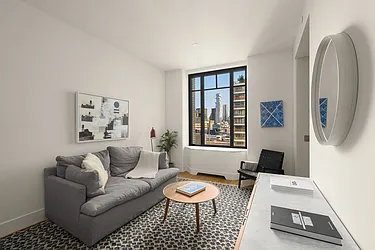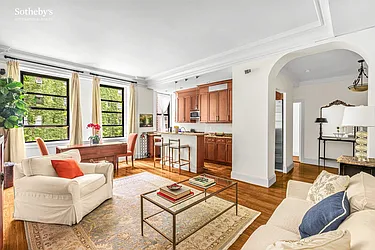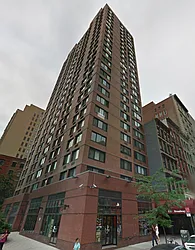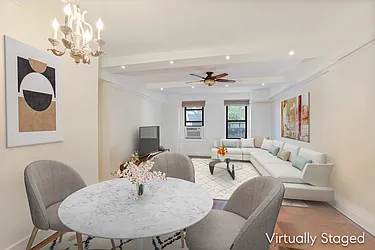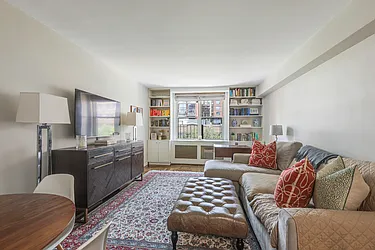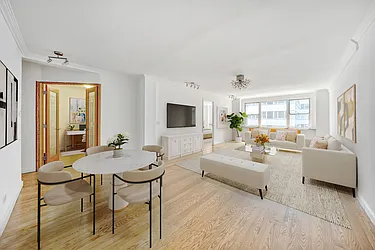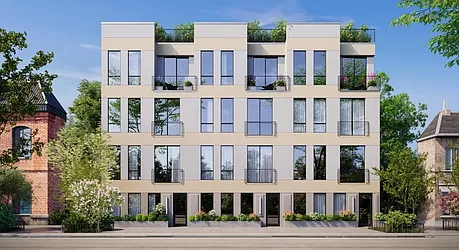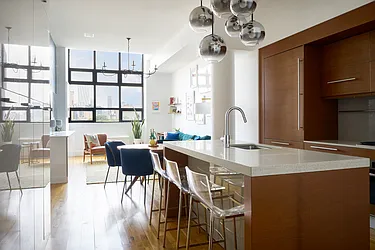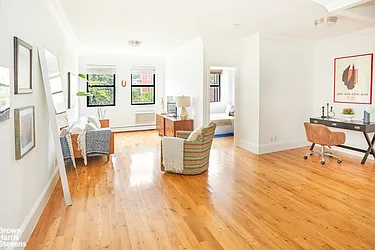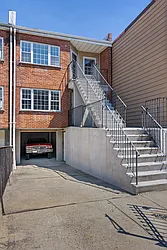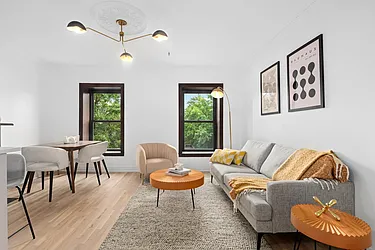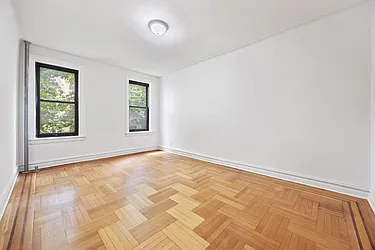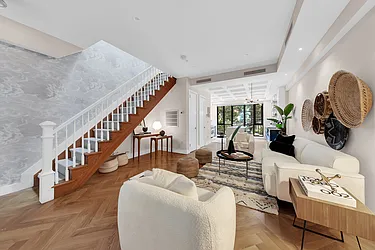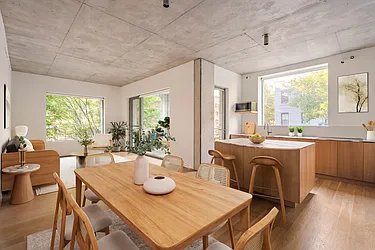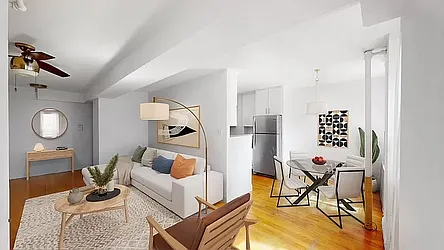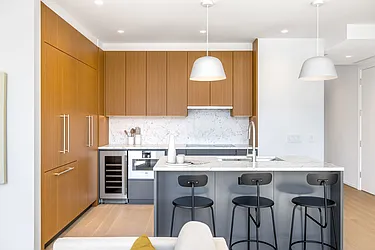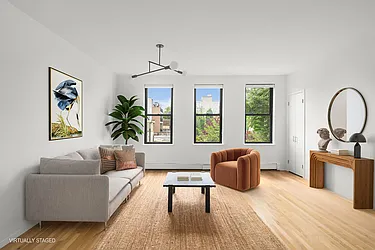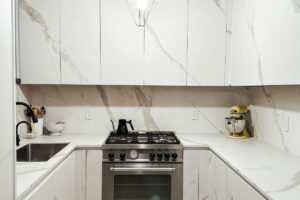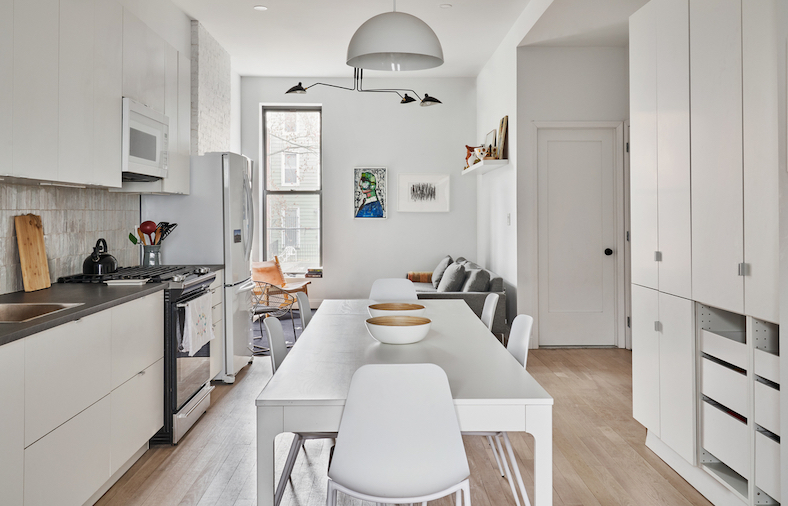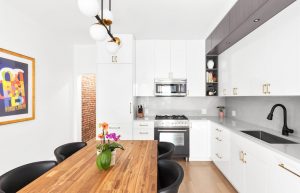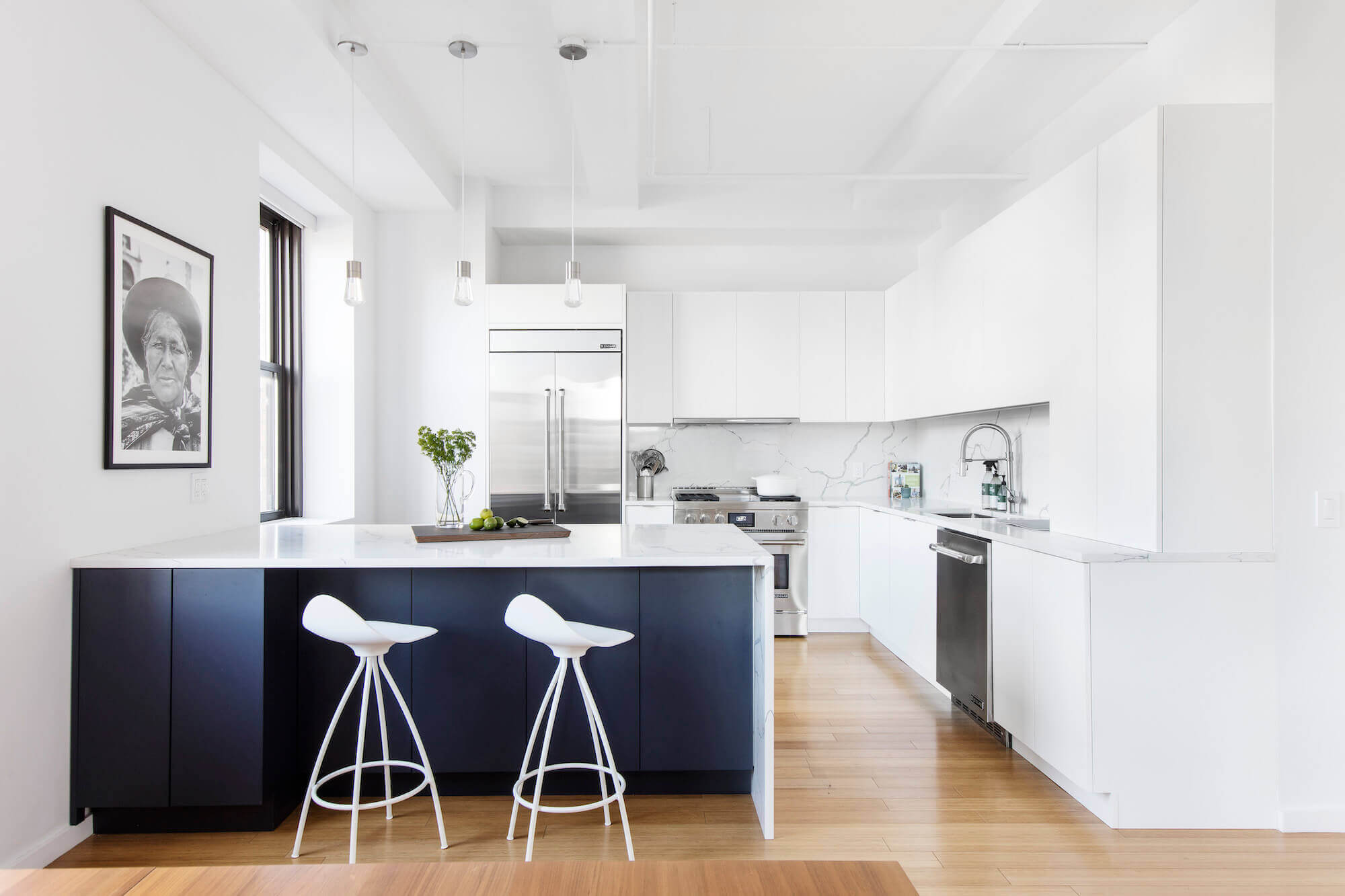
Arnish, a chef, remodeled his kitchen with Sweeten, including a larger sink for pots and pans and deeper cabinets for equipment and gadgets.
Who doesn’t dream of renovating their kitchen or bathroom? Especially in NYC’s tight quarters, we’re constantly looking for solutions and style all in one fell swoop, whether it’s maximizing a galley kitchen or swapping a tub for a shower. Updating these popular areas holds the power to improve our daily lives — and (bonus!) renovating can be a good way to increase home value when it’s time to move on.
Kitchens and baths are the most popular spaces to renovate — a projected $716 billion industry, according to The National Kitchen and Bath Association’s Size of Market Study and Outlook. A national survey by Sweeten, a free platform that matches homeowners with vetted general contractors, revealed bathrooms as the top renovation space for New Yorkers, followed by kitchens.
To get the lowdown on navigating the kitchen and bathroom renovating process, we asked the Sweeten experts. They shared what qualifies as a big job, what you can DIY (or not), what it might cost, and how long it may take.
Manhattan Homes Under $2M on StreetEasy Article continues below
Average Costs for Renovating Kitchens & Baths in NYC
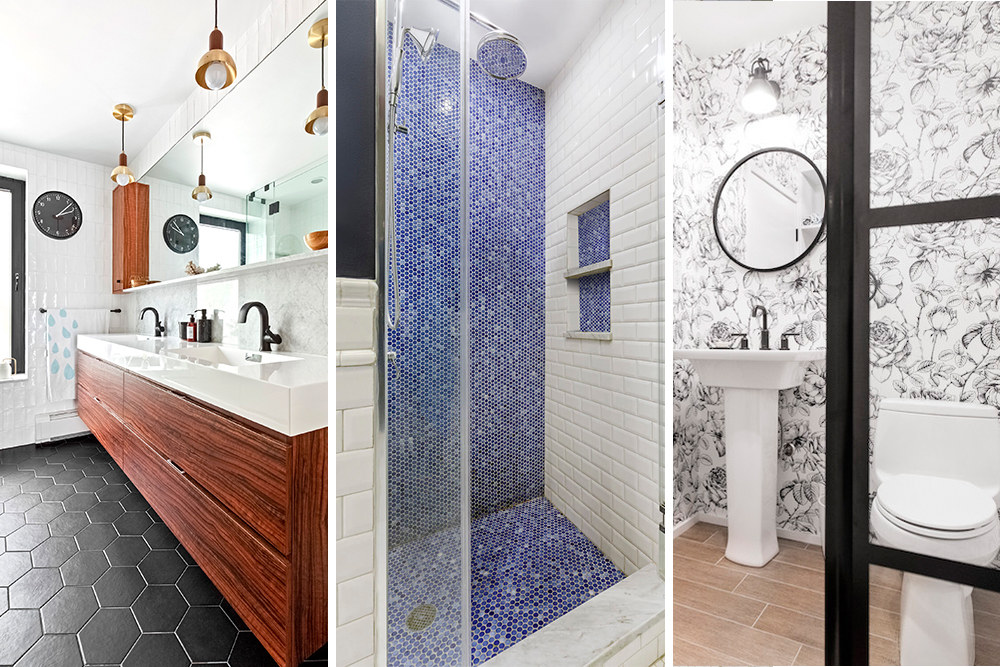
Continuing trends for 2020 in the bath include floating vanities, secret storage spots, and statement wallpaper.
To help homeowners budget and decide on quick fixes (like new hardware and fixtures) versus a more extensive overhaul (new cabinets, appliances, etc.), Sweeten has compiled a basic list of kitchen and bathroom renovation elements. In general, a bathroom renovation starts at $400 per square foot, and a kitchen remodel at $300 per square foot. If you plan to relocate plumbing or change the layout of your space, that will add both cost and time to a project. Here’s a breakdown of material costs associated with these renovations:
The Bath:
- Wall and floor tile: From $3 per square foot (budget) to $35 per square foot (high-end)
- Sink: From $50 (budget) to $500+ (high-end)
- Vanity: From $250 (budget) to $2,000+ (high-end)
- Bathtub: From $150 (budget) to $2,500+ (high-end)
- Shower enclosure: From $350 (budget) to $2,000+ (high-end)
- Toilet: From $150 (budget) to $1,000+ (high-end)
- Medicine cabinet: From $50 (budget) to $500+ (high-end)
- Lighting: From $25 per fixture (budget) to $300+ (high-end)
- Radiant floor heating: From $6 per square foot (budget) to $12 per square foot (high-end)
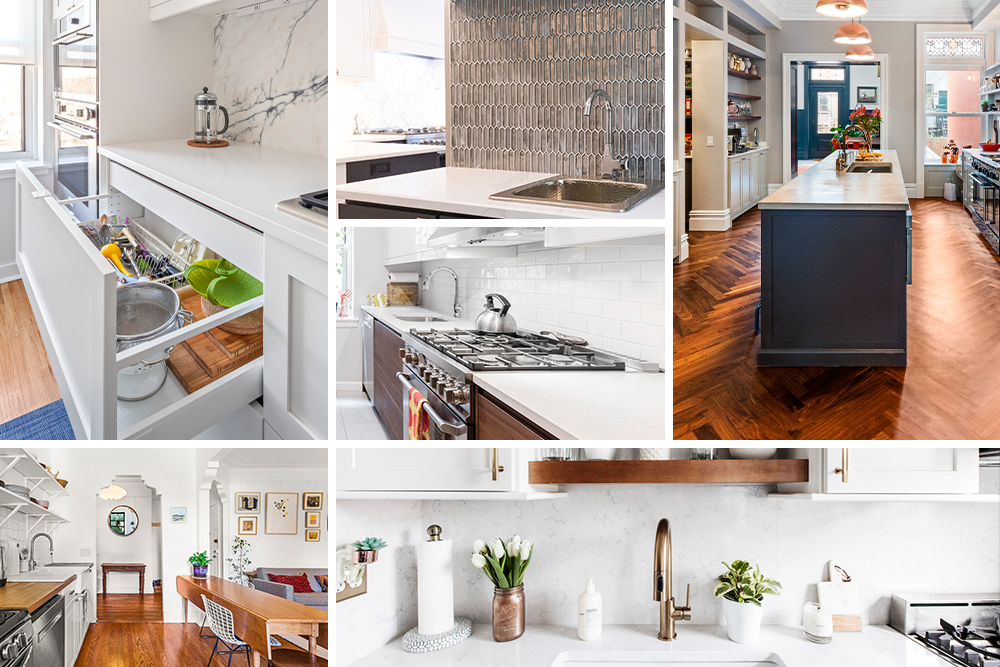
On-trend design elements for the kitchen include, clockwise from left, cabinet drawers, statement walls, herringbone patterns, brass fixtures, and semi-open spaces.
The Kitchen:
- Cabinets: From $130 per linear foot (budget) to $2,000 per linear foot (high-end)
- Appliance package: From $2,000 (budget) to $17,000-$26,000 (high-end) [package typically includes fridge, range, microwave, and dishwasher]
- Countertops: From $5 per square foot (budget) to $100+ per square foot (high-end)
- Backsplash: From $3 per square foot (budget) to $35+ per square foot (high-end)
- Floor tile: From $3 per square foot (budget) to $35+ per square foot (high-end)
- Kitchen sink: From $150 (budget) to $2,000+ (high-end)
- Lighting: From $50 per piece (budget) to $500 per piece (high-end)
- Cabinet hardware: From $5 per piece (budget) to $300 per piece (high-end)
Note: Budget is defined by products you can find in big-box stores like Walmart, Lowe’s, and Home Depot. The above are costs for materials only and do not include installation estimates.
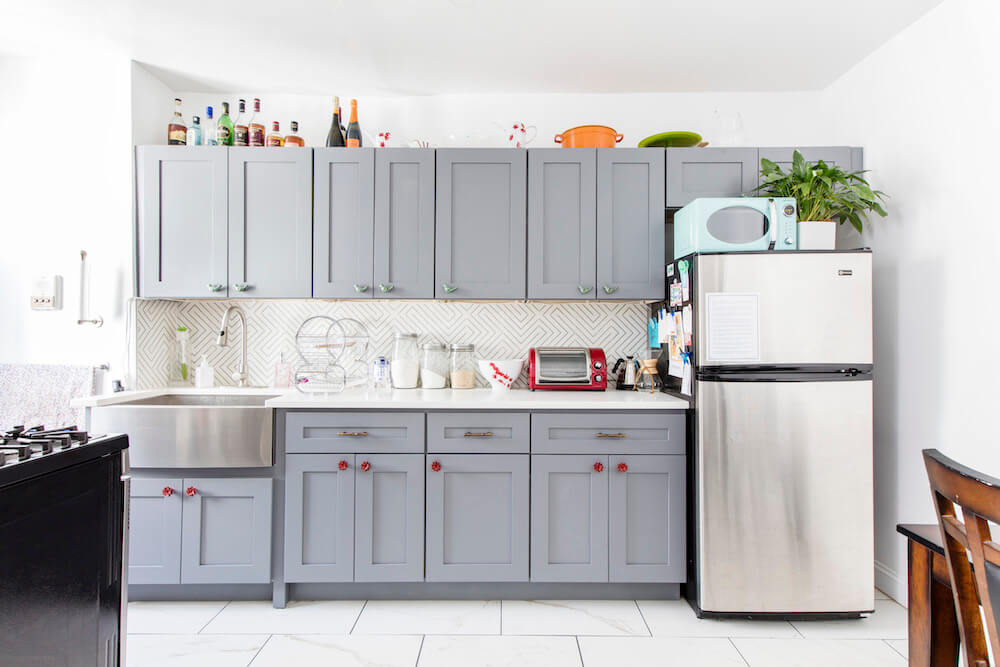
Prewar flourishes and 10-foot ceilings sold this Hamilton Heights homeowner on her apartment, but it still needed an update, so she called on Sweeten to renovate the kitchen.
Home Updates That Pay Off
When renovating kitchens and bathrooms, you may want to take into account whether the project will increase the value of your home. According to Remodeling Magazine’s Cost vs. Value Report, focusing on the most visible parts of your home — notably, the kitchen and bath — tends to bring the best value.
- A minor kitchen renovation (defined as $30K) should let you recoup roughly 84.9% of your cost.
- A major kitchen renovation (about $84K) is projected to recoup 61%.
- A midrange bathroom remodel returns 67% of your investment.
A minor kitchen remodel would not involve changing the layout or knocking down walls; you might refurbish cabinet doors, change out the hardware, upgrade countertops, replace the backsplash, and repaint. A major renovation is characterized by gutting the space and potentially removing walls or overhauling the layout to increase functionality. Depending on budget, you would also replace appliances and flooring, plus add a peninsula or island — in addition to the other updates noted in the minor kitchen remodel.
For the bath, a minor renovation includes a fresh coat of paint, swapping out a medicine cabinet or mirror, and reglazing the tub. One step further would be to rip out and replace the shower, toilet, and vanity — or even move the plumbing to reconfigure the layout.
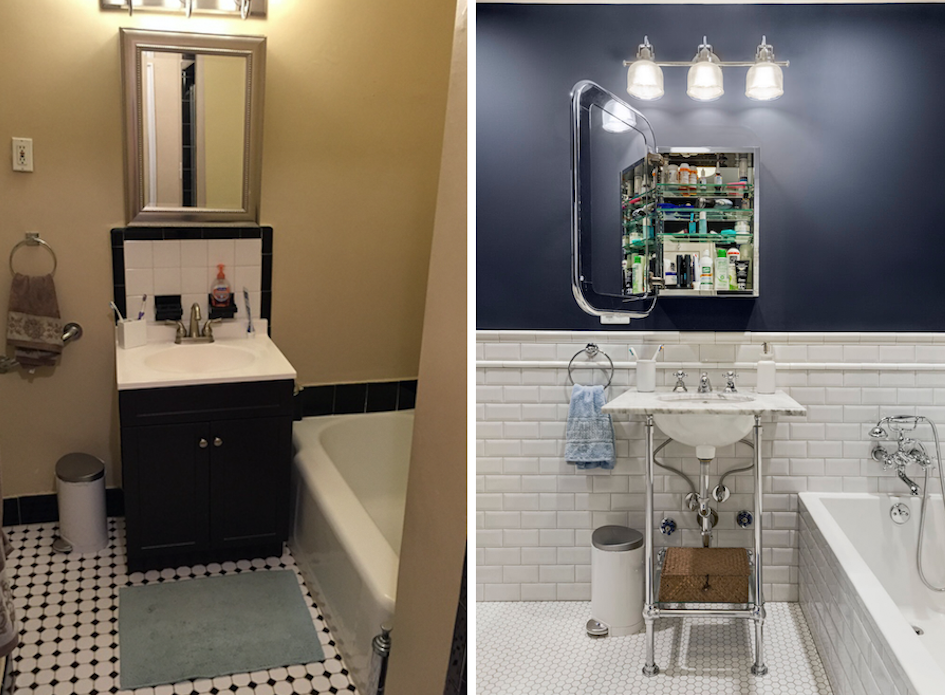
For this renovation, the homeowners updated their bathroom with a dusky shade of blue, new hexagon floor tile, and vintage-style tub fixtures.
How Long Does It Take to Remodel a Bathroom?
Now that you know the different levels of kitchen and bathroom renovating, the natural next question is, “How long will it take?” In general, it takes between six weeks and three months for the planning, execution, and wrapping up of loose ends for bath remodels. Here are some timing guidelines for the construction phase (a kitchen has many more variables; see a step-by-step guide here):
- One day for demolition. Before this starts, don’t forget to protect the items that are staying with a tarp or plastic — and mark them accordingly.
- One or two days if you are planning to reroute plumbing or electrical. If you are moving them, you will need approval from the city — this doesn’t take long once the inspector comes, but it may take a few days to schedule the appointment. (For questions about permits, check out the city rules for plumbing and electricity.)
- One full day for floor installation, and then up to 3 days for the rest of the fixtures and finishes to be put in.
- One day for clean-up. Most contractors leave the bathroom in what they call “broom-swept condition,” which means you might want to do a more thorough cleaning after.
- One or two hours for a final walk-through with the contractor a few weeks after project completion. You will want to live in the space for a bit and note any things that may need to be corrected.
Brooklyn Homes Under $2M on StreetEasy Article continues below
DIY, or Hire a Pro?
It may sound tempting to redo your bathroom yourself to save money, especially if it is a small space. However, remember that many New York City apartments have co-op, condo, and other city regulations that require a professional contractor. Your contractor will need to provide proof of insurance and a license — and is held legally responsible for work done in your home.
You want to leave these things to the pros:
- Demolition: Whenever you are dealing with plumbing or electrical, you need a contractor for safety reasons. Other demolition logistics best handled by a pro include discarding the great amount of garbage that comes with demo, and removing items you may want to keep intact to be reused in your renovation.
- Structural work: Want to take down a wall in your kitchen to get an open-concept layout? A contractor will know: 1) if you can do this in the first place; 2) what is needed to do this correctly (for example, is a reinforcement beam needed?); and 3) what to do if you find unexpected things behind the wall, such as electrical or plumbing that’s not to code.
- Skim coating: A tedious process in which a layer of mud used in construction is hand-applied over the surface of the wall or ceiling for a supremely smooth paint job. It takes a lot of practice and skill; if done incorrectly, it can ruin the final product.
- Tilework: Tiling a bathroom floor or shower can be a challenge, and it’s a task best left to professionals. Depending on the tile, a pattern — like a mosaic — can be complicated to place and require a certain level of trade skill.
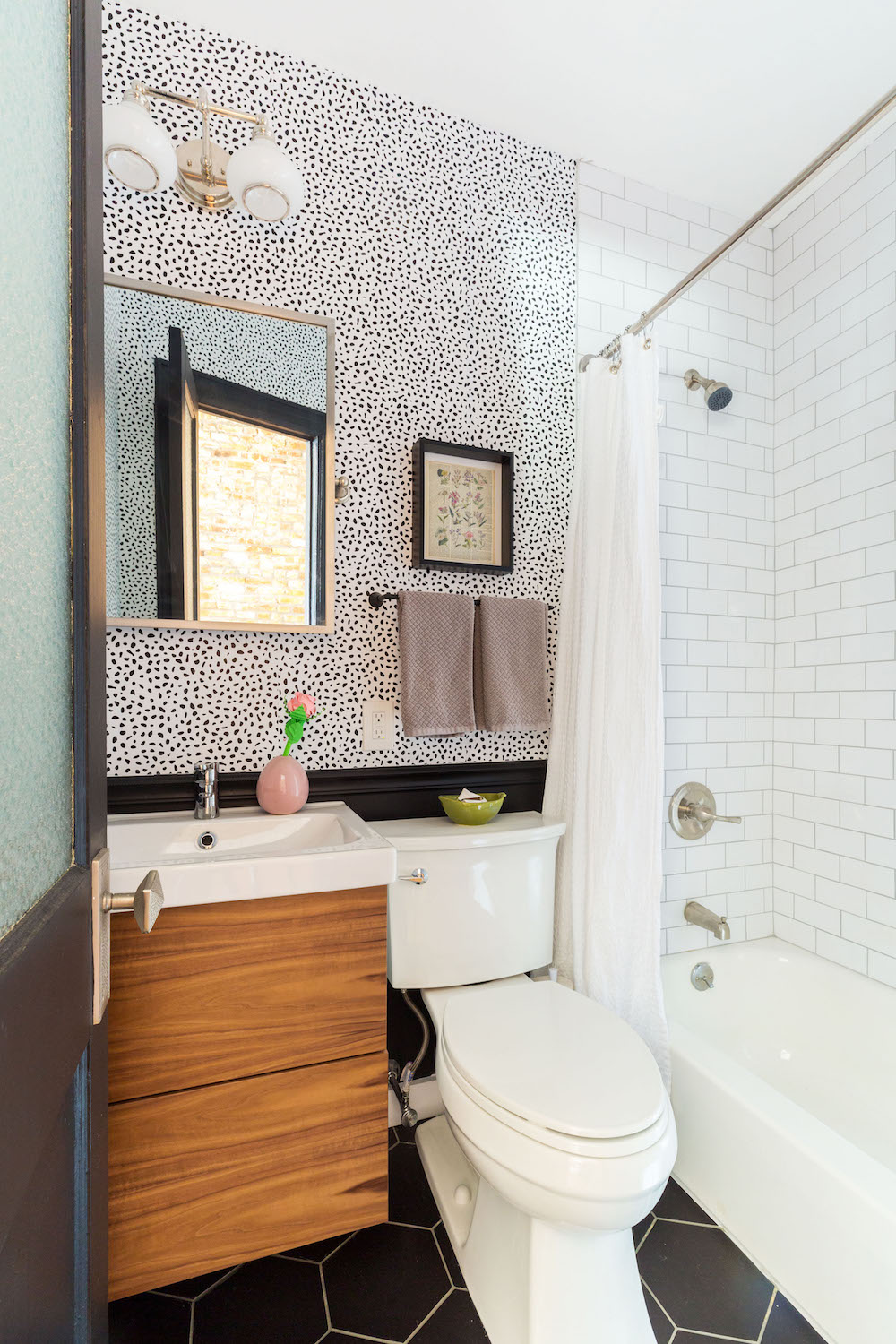
For their bathroom redo, these homeowners put their DIY skills to the test and added wainscoting and wallpaper.
But there are some smaller refreshes you might want to consider tackling yourself:
- Painting: Since most of the costs associated with painting come from labor, you may decide to handle some painting jobs yourself. The prep is the hardest part, so if your walls are in bad shape, you could always hire someone to repair them and then paint them yourself. Fair warning: Many Sweeten homeowners who paint themselves admit they’d hire a professional painter the next time around.
- Cabinets: If you have patience and good attention to detail, you can save some time and money by assembling your own kitchen cabinets (assuming they are part of a modular system). Then, you can just have your contractor install them.
- Wallpapering: These days, it’s easier to do this yourself: Options include removable peel-and-stick wallpaper that you can change up every few years.
Whether your space needs a fresh new look or could use an improved flow, it’s essential to have a good understanding of the process — and to find the right licensed general contractor to translate your dream to reality.
—
Inspired to find your next place in New York? Whether you’re looking to rent or to buy, search NYC apartments on StreetEasy.
